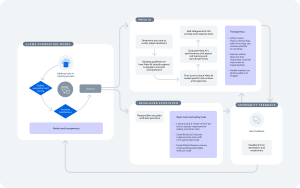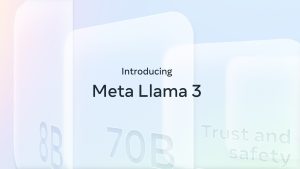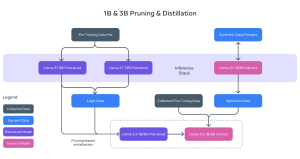MENLO PARK — In an innovative move to bridge the gap between companies and job seekers specializing in artificial intelligence across the Middle East and North Africa, LyRise has introduced a cutting-edge platform that utilizes AI for talent-as-a-service (TaaS). The company aims to transform how candidates are matched to job opportunities by leveraging Meta’s Llama technology to tackle challenges in text summarization and the development of effective retrieval-augmented generation (RAG) pipelines.
LyRise recognized the necessity for refined solutions in summarizing job descriptions and resumes, prompting their collaboration with Meta’s Llama 2. This powerful tool has proven instrumental in condensing resumes and evaluating job descriptions, allowing LyRise to construct robust matching algorithms that improve the recruitment process by up to 50% in terms of time-to-hire while maintaining high-quality talent acquisition. The platform’s open-source foundation enabled rapid experimentation and propelled the development process from initial concepts to beta versions.
The journey toward implementation began with testing various open-source models, leading LyRise to select Llama 2 for its superior integration capabilities. Initially employed for exploratory purposes, Llama’s role quickly expanded to become a cornerstone of LyRise’s AI development. “After experimenting with different models, we found that Llama 2 was the most suitable for our needs,” states Mohamed Rashad, LyRise’s Technology & AI Lead. “We began with exploratory tests, but it has now become a reliable part of our development process.”
Through the integration of Llama 2, the team harnessed the capabilities of advanced AI to streamline the matching process. Utilizing Replicate.com, LyRise established RAG pipelines that efficiently index databases of resumes and job descriptions. This not only improved the accuracy of candidate matches but also ensured a sophisticated understanding of context through embedding generation.
The future looks promising for LyRise as they explore the capabilities of Llama 3 to further refine their matching algorithms. This latest iteration offers improved contextual understanding and enhanced multilingual capabilities, enabling the platform to cater to a broader array of candidates and job listings. Rashad notes, “With Llama 3, we can achieve even greater accuracy in matching CVs to job requirements, while also expanding our reach to more diverse applicants.”
The transition to Llama 2 has not only expedited the product development timeline but has also provided significant cost advantages compared to traditional proprietary models. LyRise’s adoption of open-source technology has allowed for greater scalability and the assurance of data privacy, crucial for maintaining client confidentiality throughout the hiring process. Rashad emphasizes the financial benefits, saying, “Open-source has virtually eliminated our costs in developing our minimum viable product and alpha stages.”
LyRise’s experience with Llama underscores the transformative power of open-source software in democratizing access to advanced AI technologies. By reducing barriers for startups and smaller organizations, the open-source movement encourages rapid innovation and collaboration within the industry. “It empowers us to learn and build quickly while simultaneously pushing the field forward,” Rashad concludes. “We aim to contribute back to the open-source community once our solutions are fully developed.”
This strategic approach not only positions LyRise at the forefront of AI-driven recruitment but also exemplifies the significant potential of open-source technology in shaping the future of talent acquisition.



















